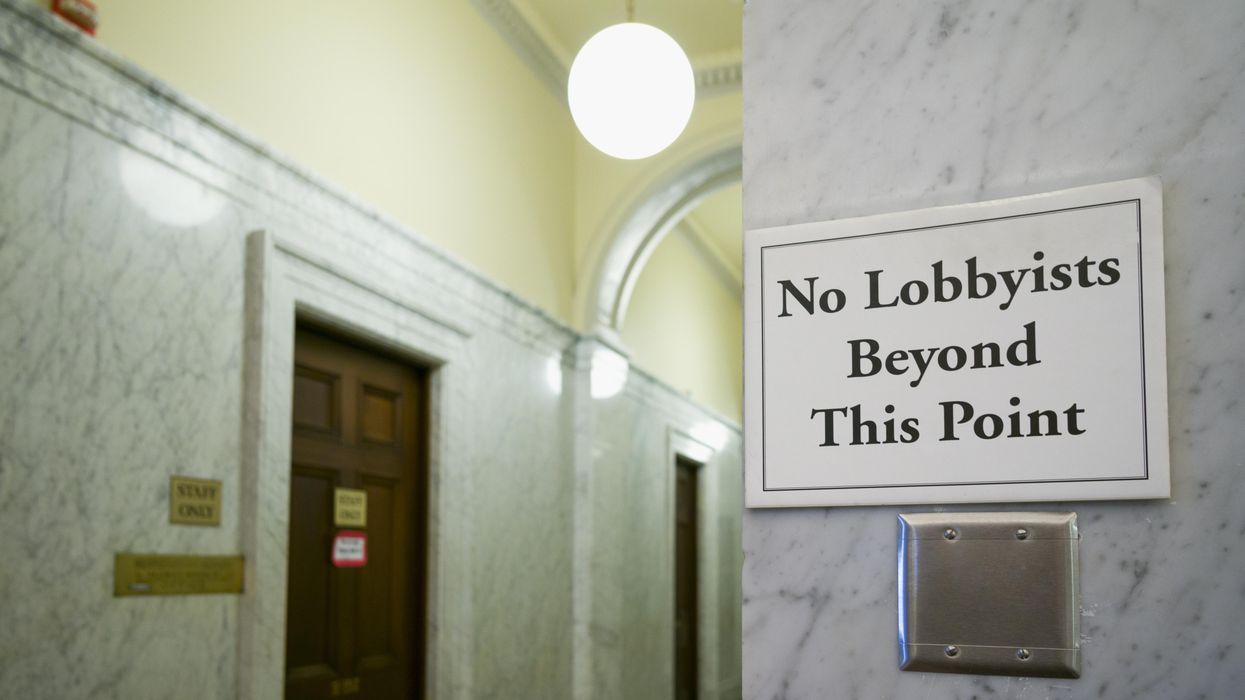When you join the lobbying profession, you know immediately you become Public Enemy No. 1. Frankly, you can't blame the public for feeling this way.
As a profession we let Washington define who we are and how we operate. We don't have a bully pulpit the way candidates, members of Congress and presidents do. We do not have a public forum where the people can hear us.
When attacks come, we bury our heads in the sand and don't stand up for ourselves and what we do. We simply hide and wait for the onslaught to pass. It's easy for elected officials to blame lobbyists for the dysfunction in Washington, the alternative being for them to look in the mirror and point the finger at themselves for their direct failures on behalf of those who elected them. When in doubt, create a boogeyman the public hates or distrusts more than you.
When you become a lobbyist, you know that every election year you will become the scapegoat for all the failures of both Congress and the incumbent president's administration. You know that in one breath members of Congress and the president will blame you for a policy stalemate — and then in the next breath call you and ask you for a campaign contribution. These same elected leaders will tell their constituents how they need to halt the influence that lobbyists have in Washington. But when they leave their campaign rallies, they will call us asking for help on their campaign.
The reality is that it's good politics to trash a profession the public does not know much about. It's good business to spread lies, and only then to turn to us and use us to get you elected. Frankly, shame on people in our business for allowing it.
Joe Biden campaigned on improving ethics in the capital, but now that he's been elected that seems like it was just a tagline to get votes. He is imposing restrictions on lobbyists serving in his administration and on government boards, yet his transition team is filled with big-name lobbyists. His team has said that not all lobbyists will be banned. Some will be given waivers to serve.
My questions for the president-elect are: Why some and not all? If our profession is the problem in Washington, as you claim, then why does your team include lobbyists? Why the need for waivers? Why not simply ban all of us, not just some of us?
The answer is simple. You have been in elected politics for more than 40 years and you know the true value of what we do — and the information and expertise we will offer you and your new administration. So, while it may get you a good public reception to claim you are banning lobbyists, then quietly you will enlist us. It is the Washington way.
But while Biden's policy discriminates against a class of people because of what they do, it makes exceptions for people close to you or who have been big donors to you over the years. The American people deserve better than this. Frankly, our profession deserves to be treated better than this.
The next president campaigned on the promise to create a diverse administration. Some will say he is doing just that. I take a different view. The policies he is putting in place not only discriminate against a whole class of professionals, but they also tell lobbyists of color they are not welcome to serve in the new administration. At a time when we should be celebrating public service and are asking corporate America to be more inclusive, Biden is doing the exact opposite. His bans limit lobbyists of color from creating opportunities to be selected to top positions in government and their chosen fields. That is exactly what the president-elect has criticized corporate America for doing.
As his new administration begins, I would urge Biden to reconsider his lobbyist ban for the reasons here. Barack Obama did much the same after he was elected president a dozen years ago and it turned into a black eye for his administration, which relaxed its rules six years later in the aftermath of an unfavorable federal appeals court ruling.
Since 2009 we have seen a growing trend of people taking themselves off the lists of registered federal lobbyists so they could serve in the Obama and Trump administrations. We suspect that will continue under a Biden administration unless he changes course.
Such shadow lobbying is a real problem — and one our profession is fighting against. The new president should work with us on creating policies that create more transparency, not less. But an outright ban is going to continue the rise of shadow lobbyists at a time when the American people are tired of corruption in government.
Please, Mr. President-elect: Work with us and not against us. I would urge you to be honest in your policies. If you ban lobbyists, you need to ban all lobbyists, not just some. You need to return the campaign donations you have taken during your campaign to every lobbyist or political action committee. You need to stop taking money from lobbyists or corporate America for your inauguration. And you need a universal diversity and inclusion policy that is inclusive of all, not just some.
As a profession, we want to work with you on transparency. We want to work with you on ethics reform. This is only possible if your administration is open and honest about your policies and does not create carve-outs for big donors or close friends. You cannot hold the rest of us accountable if you are not going to follow your own lead.
Leadership starts at the top with one policy for all, not just some well-connected Washington insiders.



















Trump & Hegseth gave Mark Kelly a huge 2028 gift